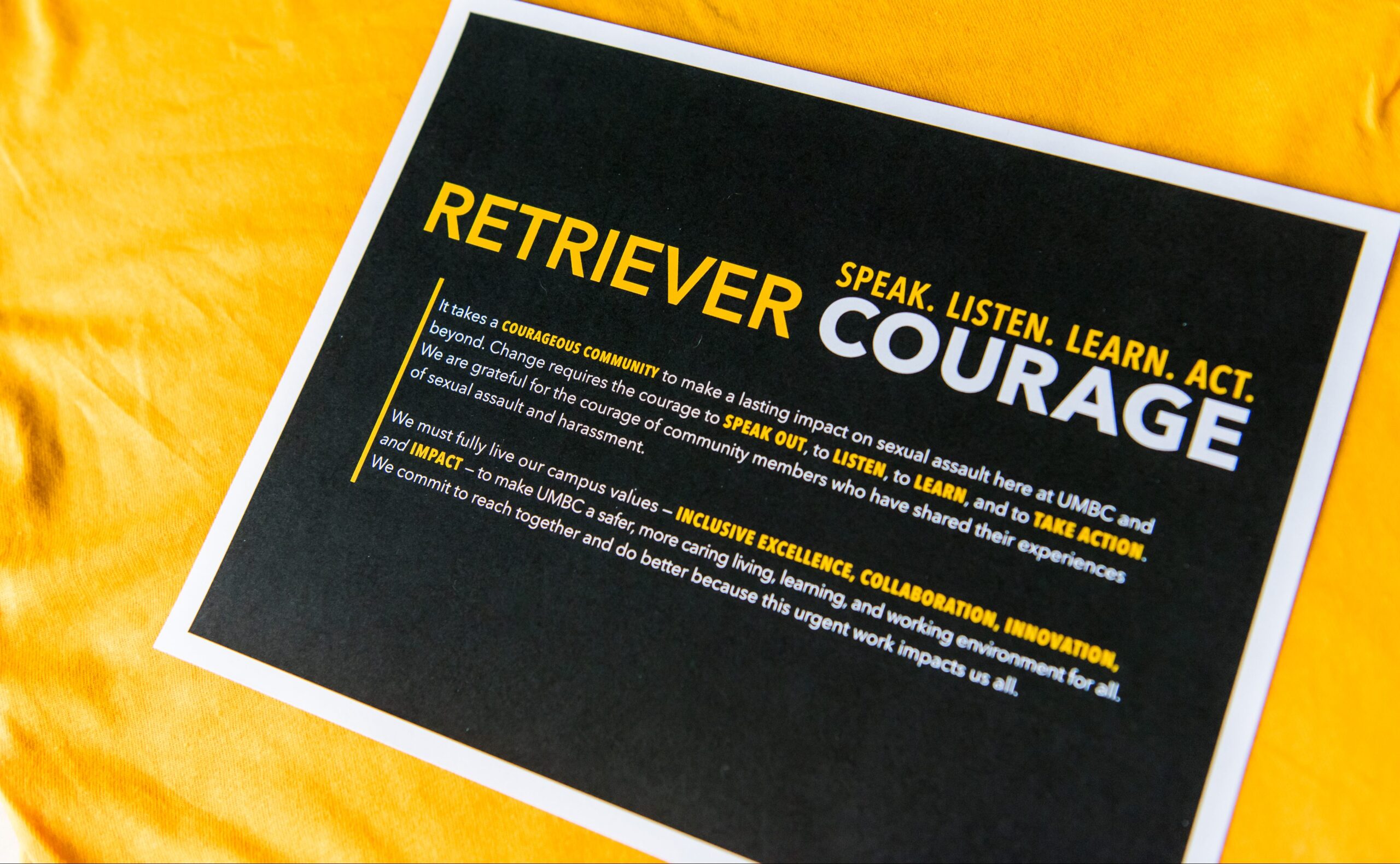UMBC community leaders have announced the Retriever Courage initiative—the next phase in UMBC’s collaborative work to prevent and respond to sexual assault and other forms of sexual misconduct. In a message sent to the campus community yesterday, November 1, President Freeman Hrabowski, Provost Philip Rous, and University Steering Committee representatives from faculty, staff, and student senates noted:
Change requires the courage to speak out, to listen, to learn, and to take action. We must fully live our campus values—inclusive excellence, collaboration, innovation, and impact—to make UMBC a safer, more caring living, learning, and working environment for all.
The university has also just launched a Retriever Courage website to document progress in this long-term work, provide resources, share informative documents (e.g., policies, reports, research), and serve as a space for ongoing updates.
This new website also describes the shared governance and administrative teams moving this work forward:
- University Steering Committee, serving as an advisory body to the implementation team;
- Student Advisory Committee, to provide a voice for and share feedback from students, with representation on the procurement advisory group;
- Faculty/Staff Advisory Team, to provide a voice for and share feedback from faculty and staff, with representation on the procurement advisory group;
- Evaluation Committee, which will select an external consultant or firm to review all aspects of the university’s sexual misconduct prevention and response policies and practices, and training and awareness programs, to help determine where we can learn from other institutions’ best practices and evidence-based research;
- Training Implementation Team, to roll out and manage mandatory training; and
- Implementation Team, to continue addressing immediate, short-term campus needs, such as lighting, signage, and the new campus ID card, and other recommendations from faculty, staff, students, and alumni.
Community members interested in serving on a committee or providing feedback in other ways are encouraged to contact their shared governance representatives or email retrievercourage@umbc.edu.
As the new Retriever Courage website describes, Faculty/Staff and Student Advisory Committees will take recommendations to the University Steering Committee. That group will then work with the Implementation Team to finalize recommendations to submit to UMBC’s vice presidents and deans. After these leaders review and sign off on proposed actions, policies, budget allocations, etc., they will then go the university president for final approval.
“Through continued work together, UMBC will become a stronger community,” yesterday’s university message concluded, “and we know this work will have a lasting impact on campus and beyond.”
Featured image: Retriever Courage description; photo by Marlayna Demond ’11 for UMBC.
Tags: retrievercourage




